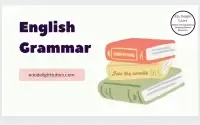Self-Control Civic Education Kindergarten Second Term Lesson Notes Week 4
Comprehensive Lesson Plan
Subject: Civic Education
Class: Kindergarten (Age 5)
Term: Second Term
Week: 4
Age: 5 years
Topic: Self-Control
Sub-topic: Meaning, Examples, and Importance of Self-Control
Duration: 40 minutes
Behavioral Objectives
By the end of the lesson, pupils should be able to:
- Identify and discuss the simple meaning of self-control.
- Explain actions that show self-control among pupils.
- Appreciate the importance of practicing self-control in daily life.
Keywords
- Self-control
- Patience
- Discipline
- Actions
Set Induction
The teacher shows a short video clip of a child resisting the urge to grab another child’s toy and asks the class, “Why do you think the child did not grab the toy?”
Entry Behaviour
Pupils are familiar with rules about sharing, waiting for their turn during activities, and asking for permission before acting.
Learning Resources and Materials
- Picture books illustrating self-control
- Storybooks with characters practicing self-control
- Flashcards with keywords
- A video clip demonstrating self-control
Building Background/Connection to Prior Knowledge
The teacher asks pupils to share examples of times they had to wait for something they wanted, such as waiting their turn during play or waiting for snacks.
Embedded Core Skills
- Digital Literacy: Pupils watch a video clip and identify key lessons.
- Communication and Collaboration: Pupils discuss actions that show self-control in groups.
- Critical Thinking and Problem-Solving: Pupils identify and evaluate situations where self-control is necessary.
- Leadership and Personal Development: Pupils take responsibility for leading group discussions.
Learning Materials
- Picture books
- Storybooks about self-control
- Video clips demonstrating self-control
Reference Books
- Lagos State Scheme of Work
- Civic Education Textbook for Kindergarten
Instructional Materials
- Picture charts showing self-control scenarios
- Flashcards with terms like patience, discipline, and actions
- Video clips of children practicing self-control
Content
Meaning and Explanation of Self-Control
- Self-control means staying calm and not acting out when upset or tempted.
- It is the ability to stop yourself from doing something wrong.
- Self-control helps us make good choices.
- It shows that we are disciplined and responsible.
- Self-control is important for being a good friend and a good citizen.
Examples of Self-Control
- Waiting your turn to speak or play.
- Not eating snacks until it is time.
- Sharing toys with friends instead of grabbing.
- Walking away from a fight instead of arguing.
- Listening to instructions before acting.
Evaluation Questions (Fill-in-the-Blank)
- Self-control means staying ___ (a) angry (b) calm (c) noisy (d) none).
- Waiting for your turn is an example of ___ (a) patience (b) disobedience (c) fighting (d) shouting).
- Not grabbing another child’s toy shows ___ (a) respect (b) anger (c) selfishness (d) fighting).
- Listening to instructions before acting shows ___ (a) discipline (b) carelessness (c) anger (d) disobedience).
- Self-control helps us make ___ choices. (a) bad (b) good (c) silly (d) none).
- Eating snacks only at snack time is an example of ___ (a) discipline (b) fighting (c) disobedience (d) laziness).
- Walking away from a fight shows ___ (a) self-control (b) selfishness (c) trouble (d) none).
- Self-control helps us be a good ___ (a) friend (b) fighter (c) troublemaker (d) none).
- Sharing toys with others is an act of ___ (a) kindness (b) selfishness (c) disobedience (d) none).
- Self-control shows that we are ___ (a) responsible (b) careless (c) noisy (d) lazy).
Class Activity Discussion (FAQs)
- What is self-control?
It is staying calm and making good choices. - Why is self-control important?
It helps us avoid problems and show discipline. - What happens if we don’t show self-control?
We might hurt others or get into trouble. - Give an example of self-control.
Waiting for your turn during playtime. - Who can practice self-control?
Everyone can practice it. - How does self-control help at school?
It helps us follow rules and get along with others. - What should you do when you feel like arguing?
Stay calm and walk away. - Why is sharing an example of self-control?
Because it shows kindness and patience. - What should you do if you want a toy that someone is playing with?
Wait for your turn. - How does self-control make you a better friend?
It helps you be kind and respectful. - What does self-control teach us?
To be responsible and disciplined. - Can self-control help at home? How?
Yes, by listening to parents and following rules. - What should you do when you are angry?
Take deep breaths and calm down. - Is self-control easy?
No, but we can practice it every day. - Why do teachers encourage self-control?
To help us grow and learn better.
Presentation Structure
- Step 1: The teacher revises the previous topic (Obedience).
- Step 2: The teacher introduces the topic of self-control using a video clip.
- Step 3: Pupils identify lessons from the video and discuss the meaning of self-control.
- Step 4: Pupils work in groups to list actions that show self-control.
- Step 5: The teacher summarizes key points and reinforces learning with a song or story.
Teacher’s Activities
- Play a video clip demonstrating self-control.
- Guide pupils in defining self-control.
- Provide examples of self-control and ask pupils to share theirs.
- Lead a group activity to discuss actions that show self-control.
- Praise pupils for their participation and correct any misconceptions.
Learners’ Activities
- Watch the video and discuss the lessons learned.
- Share personal examples of self-control.
- Work in groups to list actions that show self-control.
- Recite a song or listen to a story about self-control.
- Answer questions related to the topic.
Assessment (Short-Answer Questions)
- What is self-control?
- Why is self-control important?
- Give an example of self-control at home.
- How does self-control help at school?
- What should you do when you feel angry?
Conclusion
The teacher goes around to mark pupils’ work, commends their efforts, and encourages them to practice self-control daily.
SEO Elements
Captivating Title: Teaching Self-Control to Kindergarten Pupils
Focus Keyphrase: Self-Control Lesson for Kindergarten
SEO Title: Self-Control Lesson Plan for Kindergarten | Lagos Scheme
Slug: self-control-kindergarten-lesson-plan
Meta Description: Teach self-control to kindergarten pupils with this detailed lesson plan. Includes engaging activities, examples, and evaluation aligned with the Lagos State


Related posts:
- Good Citizenship and Respect for National Symbols Civic Education KG Second Term Lesson Notes Week 9
- Advantages of Self-Control Civic Education Kindergarten Second Term Lesson Notes Week 5
- Second Term Mid Term Test Civic Education KG Second Term Lesson Notes Week 6
- Punctuality Civic Education Kindergarten Second Term Lesson Notes Week 2
- Obedience Civic Education Kindergarten Second Term Lesson Notes Week 3
Related Posts


Waste Disposal Materials: Compost Health Habits Kindergarten Age 5 First Term Lesson Notes Week 7


Pre-Words and Non-Conventional Two-Letter Sounds Blending Letter Work Kindergarten Age 5 First Term Lesson Notes Week 7


Letter Work Kindergarten Second Term Lesson Notes
About The Author
Edu Delight Tutors
Am a dedicated educator with a passion for learning and a keen interest in technology. I believe that technology can revolutionize education and am committed to creating an online hub of knowledge, inspiration, and growth for both educators and students. Welcome to Edu Delight Tutors, where learning knows no boundaries.
